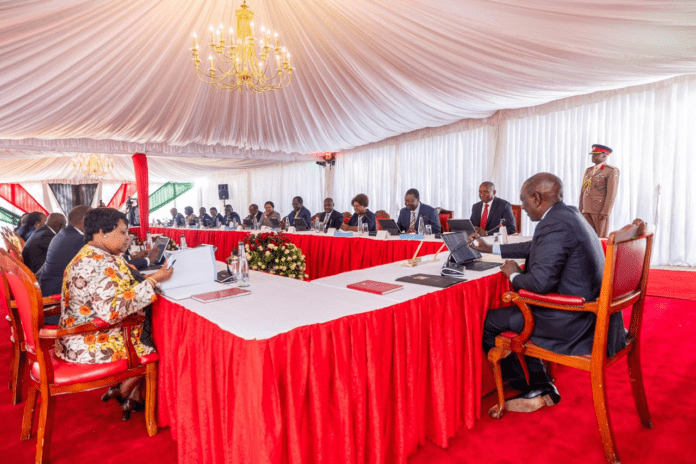The Cabinet has approved a major restructuring of State Corporations, a move aimed at enhancing efficiency, cutting costs, and addressing fiscal pressures in the public sector.
During the year’s first Cabinet meeting, chaired by President William Ruto at State Lodge, Kakamega, the government endorsed reforms that will see 42 entities merged into 20 streamlined organisations, nine dissolved, and 16 others divested.
The reforms follow an extensive review conducted by the National Treasury, which assessed 271 State Corporations, excluding those already earmarked for privatisation.
According to the Cabinet, the restructuring is aimed at addressing operational inefficiencies, reducing redundancy, and improving service delivery. Additionally, the move is expected to ease the burden on the Exchequer, especially as the government grapples with limited resources and growing public debt.
Mergers, Dissolutions, and Divestitures
Under the plan, 42 corporations with overlapping mandates will be consolidated into 20 entities. Key proposed mergers include:
- The Higher Education Loans Board with the University Fund.
- The Kenya Tourism Board with the Tourism Research Institute.
- The Export Processing Zones Authority with the Special Economic Zones Authority.
- The Kenya Water Towers Agency with the Agricultural Development Corporation.
Nine corporations, including the Kenya Tsetse Fly and Trypanosomiasis Eradication Council, the Kenya Film Classification Board, and the Nuclear Power and Energy Agency, will be dissolved. Their functions will be integrated into relevant ministries or other state bodies.
Sixteen entities deemed to have outdated mandates or roles that can be undertaken by the private sector will either be divested or dissolved. These include the Jomo Kenyatta Foundation, Pyrethrum Processing Company of Kenya, and Kenya Post Office Savings Bank.
Realignment and Declassification
The restructuring also includes realigning six corporations to better reflect national priorities. Public funds such as the Sports, Arts, and Social Development Fund will be declassified as State Corporations and returned to their respective ministries under improved governance structures.
Similarly, professional bodies like the Engineers Board of Kenya and the Nursing Council of Kenya will be declassified and cease receiving budgetary allocations from the government.
Fiscal Challenges
The reforms come amid significant fiscal challenges, particularly the accumulation of pending bills, which had reached Sh94.4 billion as of March 2024.
By addressing inefficiencies and eliminating redundancies, the government aims to improve service delivery while reducing the financial strain on the public sector.







